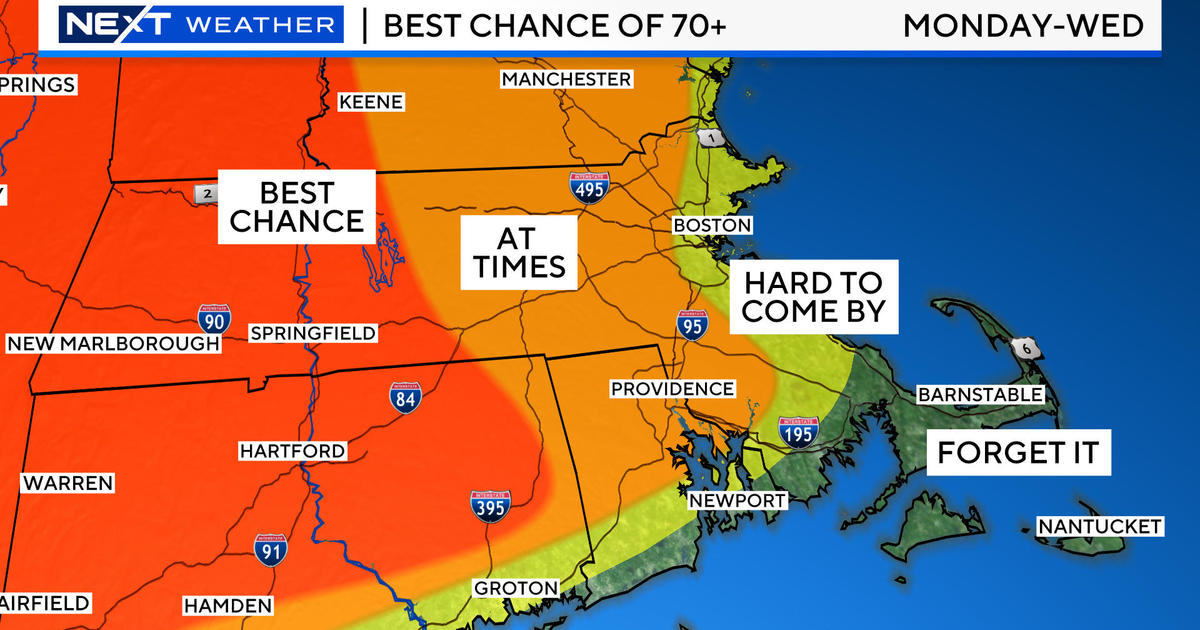Scorcher continues, humidity rising

There's no relief anytime soon for the heat that's been baking the Northeast.
The temperature broke records Tuesday in New York, where it hit 103 degrees, and in Philadelphia, at 102.
It hit 100 degrees at Logan Airport at 1 p.m. Tuesday...the first such reading since August 2002.
The National Weather Service says Wednesday is forecast to be almost as hot and more humid. Meteorologist Brian Ciemnecki explains humidity is the amount of moisture in the air. He says high humidity is what makes people feel sticky and places seem stuffy.
Wednesday's high temperature is expected to be a few degrees lower than Tuesday's, but the humidity will make it feel like 100.
Providence, R.I., and Hartford, Conn., also set records for the day.
Deaths blamed on the heat include a 92-year-old woman in Philadelphia and homeless woman in suburban Detroit.
Click here for the WBZ AccuWeather Forecast.
A Heat Alert has been issued in Boston. Click here for more information.
Despite the heat wave, New England's power grid is not expected to break its record electricity use of four years ago.
Ellen Foley, spokeswoman for ISO-New England, the region's grid operator, said Tuesday that consumer demand is expected to reach a peak of 27,000 megawatts. The record is 28,130 megawatts used on Aug. 2, 2006.
She says the long holiday weekend when offices and some businesses were closed, the weak economy that has pushed down energy demand and improved energy efficiency should ensure that electricity use won't be a record-breaker.
If necessary, Foley says ISO can bring in electricity from outside the region, call on large customers to cut electricity use and ask all consumers to turn down or shut off appliances.
Amtrak plans to care for riders amid heat wave
Amtrak says it is prepared to take care of passengers if their trains break down and lose air conditioning amid an intense heat wave along the northeast corridor.
Amtrak announced the plans Tuesday as steamy temperatures were forecast along the nation's busiest passenger rail line.
Extra water is being stored on trains and rescue locomotives are positioned every 30 to 50 miles along the corridor. Mechanical technicians also will ride trains to troubleshoot problems and restart locomotives.
Amtrak officials will share on-board conditions with the system's operations center to help develop plans.
Amtrak put similar plans into place for a commuter rail service it operates in Maryland after hundreds of passengers were stranded on a hot train last month.



